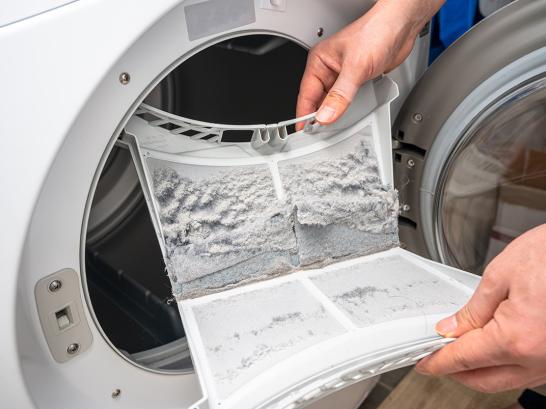

Electronic empathy
Be alert to signs that something is wrong. You might notice that your vacuum cleaner is having more trouble than usual sucking up dust, that your clothes are not always clean after washing, or that the vegetables are sometimes freezing in the fridge. Investigate the problem – start by flicking through the manual. If you can’t find out what’s wrong, call a technician. Prevention is better than taking your appliance to a Recupel point.
Loud never lasts
Here’s a tip to increase the lifespan of your speakers, eardrums and your friendship with your neighbours: don’t ramp up the volume when you don’t need to! A speaker works by vibrating a very thin cone, often made of paper. The higher the volume, the more that cone is shaken back and forth – and the less time it will last. If your music starts to sound a bit distorted, you’re testing the cone’s pain thresholdvand probably giving your ears a hard time.
Keep the filters clean
Many appliances contain a filter, often more than one. If you don’t regularly clean these filters, problems with water or air flow will start to crop up. A blocked filter will mean the appliance’s motor has to work harder or the cooling system will be strained. Either way, this will reduce the appliance’s lifespan. With household appliances such as tumble dryers, it’s best to consult the manual so you can be sure where all the filters are and how to clean them. For devices like computers or televisions, regularly check to see if the ventilation openings are full of dust and fluff.
Give it a good spin
A washing machine drum rotates a few hundred times... per minute. So there’s a high risk of damage due to wear and tear. If you wash a heavy load all at once, components such as the motor and drive belt will have to work harder. This means they wear out faster, leaks may occur and you will consume more energy. As a rule of thumb, your clothes should be able to move freely inside the drum.
But it isn’t ideal for the drum to be too empty either, because then the machine will be out of balance. The same thing will happen if your machine isn't quite level.
Other frequent problems are caused by keys or loose change left in trouser pockets. At 1600 revolutions per minute, these small objects fly around the drum and risk causing serious damage.
Too much soap is counter-productive
Most of us are guilty of using too much soap. But this allows mould to build up inside your washing machine. That mould ends up on your clothes as well. What’s more, an overdose of soap can cause problems in its own right, for example to the sensors that measure the water level. So don’t use more soap than the instructions indicate. Your washing machine will thank you for it... and go on thanking you for a long time.
With thanks to Let Me Repair and Electro Sofie for their input.



